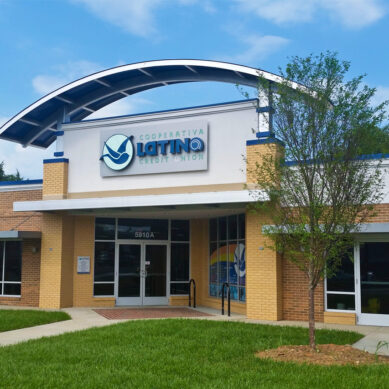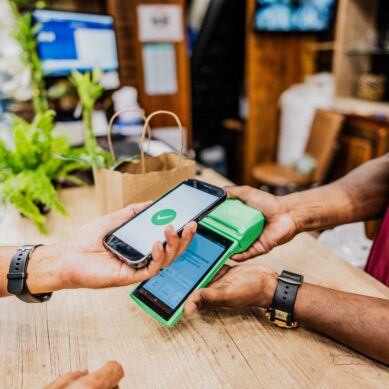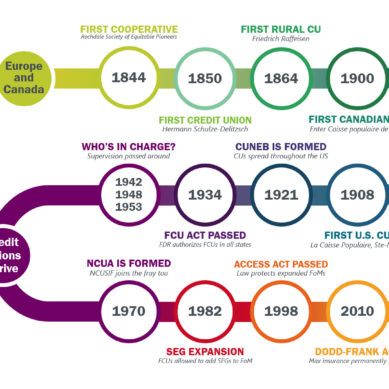Read more at chipfilson.com
America loves innovation. Especially in technology. We celebrate, honor, and enrich those entrepreneurs who bring efficiency and ease to our life and work with their inventions.
Technology underwrites greater productivity, reach, and speed in credit union services. It enables 24-by-7 interactions. Manual processes from loan underwriting and live teller interactions are replaced by AI decisioning and intelligent teller machines (ITMs). Even phone responses and live chat are now automated to the point where one must opt-out to speak with a real person.
What society prizes, is what the people will create. One writer contrasts our modern view of success with the culture in ancient Greece:
“The ancient Greeks gauged progress differently from us. ‘What is honored in a country will be cultivated there,’ Plato said. The Greeks, imperfect as they were, honored beauty and justice and moral excellence, and so they cultivated these values. We honor speed and connectivity and portability, and so that is what we get.”
The author asserts our current focus leads to: “cognitive dissonance from our misplaced faith in technology, and an attendant disregard for other forms of human progress.”
The introduction of “slow”
I was reminded of this contrast between ancient and modern values after reading about a new approach in retail services in Europe, called Slow Checkout.
Jon Horvat describes this approach in retail and service industries: “With so much buying happening online or through self-service kiosks, the art of shopping has lost much of its attraction. Some market-savvy executives have noticed this shortcoming and have recently introduced slow checkouts, which turn the routine chore into a meaningful experience.”
Many retail experiences, that is, personal shopping, are no longer personal. Human contact, especially the kind of interactions characterized by local farmer’s markets, has been eliminated in the race for self-service and cashless checkout innovations.
The pressure to automate customer interactions will only accelerate as labor shortages occur in many retail service sectors.
Executives at several retail grocery chains in Europe noticed something was missing in their retail experiences. Some customers wanted human interaction. Jumbo, a Dutch supermarket chain, and Carrefour, the French grocery leader, both introduced “slow checkout” lanes after discovering that people wanted to chat when they paid for their groceries.
Harvat describes this approach as follows:
“These small-talk cashier lanes are gaining popularity. They are called “chitchat” checkouts. The French name, blablabla caisses, is a bit more expressive.
“About 150 of Carrefour’s French stores have opened blablabla caisses, with plans to have at least one till in every location by the end of March. The lanes are marked for only those who want to talk with cashiers. There are no time limits for the customer, although most try to respect those waiting in line. The lanes come at no extra cost to the consumer.”
“Shoppers are encouraged to take their time on the slow checkouts; cashiers greet with bonjour and can ask about the family or the weather. No managers will be around to speed the process up. The aim is to slow it down.”
Both customers and cashiers report greater satisfaction in their roles where interaction is encouraged. Shopping is a social experience, not just a purchase transaction. Small talk is an important experience for people living alone or feeling lonely. Cashiers enjoy the opportunity to communicate with people, giving them a sense of expanded agency in their interactive role.
Credit unions have traditionally been an area where these interactions have been a valued part of the member experience. Members get tired of talking to machines or being referred to online applications or processes. They want to talk with real people.
People are social creatures. These chit-chat interactions show that economics, the best rate or the fast turnaround, is not the only, or even the most important, human need in every circumstance.
Every person has needs that surpass material economic sustenance. Humankind does not live by bread alone.
The boutique credit union
One person who has recognized this critical capacity for human interaction is Bo McDonald. He is a credit union consultant who has focused on the unique capabilities and experiences provided by smaller credit unions. While some may see credit unions with assets of under $100 million or below the credit union average size as a disadvantage, he sees these as “boutique businesses.”
When inspired by passion they provide member experiences long lost in some billion-dollar institutions. Ultimately every credit union is founded on relationships, even if the only measures traditionally used are the number or size of transactions.
These boutiques may not have the growth patterns of their larger brethren, but they demonstrate the enduring power of cooperative design. For when we look under the technology covers increasingly deployed by credit unions, we learn that what members really value is someone to talk to when they have a need.
Boutique credit unions demonstrate that real progress can also be achieved by slowing down and giving members your undivided attention.

























































